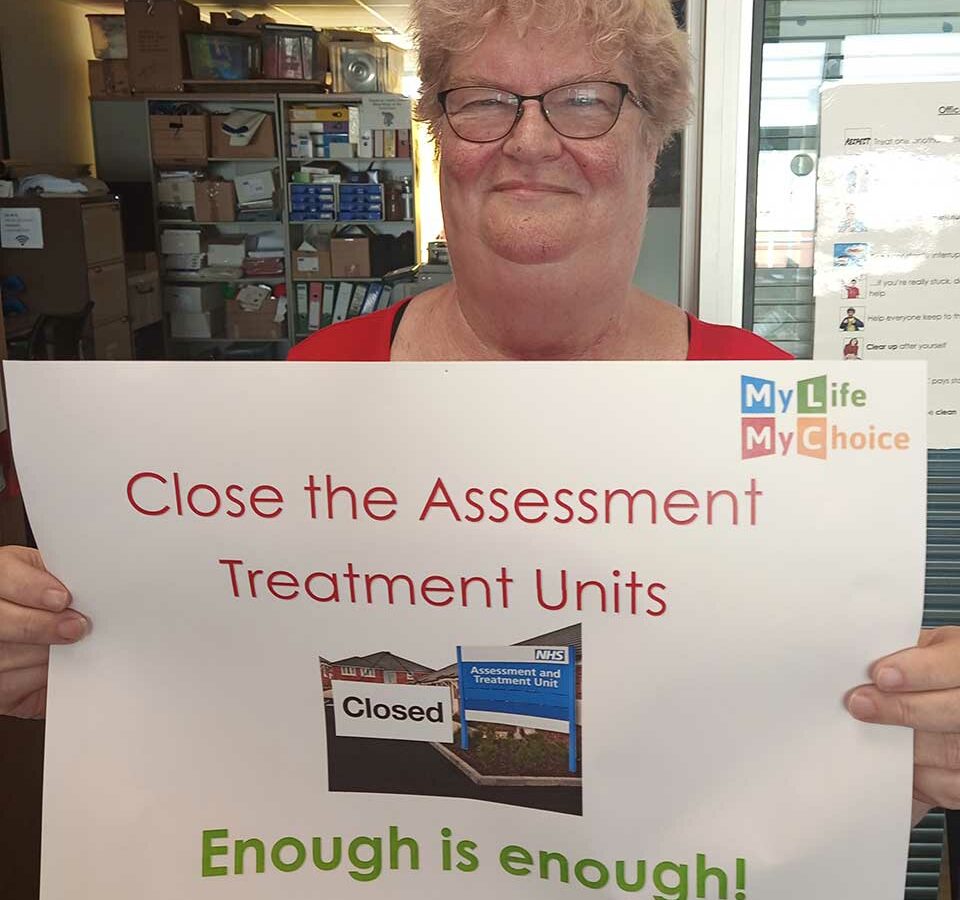Today, about 60 people from the Thames Valley region are locked up, away from home, in mental health hospitals.
This is why, earlier this year, My Life My Choice (MLMC), an Oxfordshire-based self-advocacy charity for adults with a learning disability that I co-chair, withdrew from NHS England’s Care and Treatment Review (CTR) programme.
At a CTR, a panel of independent people discuss the care of someone who is at risk of ending up in a psychiatric hospital.
CTRs were introduced following the abuse against patients at Winterbourne View assessment and treatment unit in 2011.
They are supposed to ensure that people’s views are heard while they are in hospital and that they leave hospital as soon as possible, and to help prevent similar scandals from happening.
An expert by experience is included as part of the review panel. This is someone who has or cares for someone with autism or a learning disability. The panel also includes a clinical expert and the commissioner.
The NHS England guide to CTRs says the expert by experience role is to help the panel understand what someone’s care is like and how it could be better, and to help ensure the person and family carers have a productive review.
Hope versus reality
However, some 11 years after Winterbourne View, there has been little progress in reducing the numbers of people locked away.
According to official figures, at the time of Winterbourne View, there were more than 3,400 people in similar establishments. In 2022, around 2,000 people with a learning disability and or autism are still in such units.
Abuse and poor care continue. The Whorlton Hall scandal in 2019 and Eldertree Lodge in 2021 are just two more sickening examples.
MLMC believed that being part of the CTR process would make sure people got the right care, and that people would be moved quickly into a places nearer to their family and friends.
We are proud of ourselves for giving it a go and trying to be part of making the system work
As Paul Scarrott, an MLMC expert by experience, says: “We were hoping that it would get people a better life, out of the unit and into the community. “People have been in there a long time away from the family and they needed to get back to have a better life.”
The CTR programme has become part of a process that does not work well enough to keep people out of hospital.
We do not think taking part in it is the best use of time, and experts by experience should spend their time campaigning for better care.
Agree? Then join us
MLMC would like to continue to invite organisations to adopt our position that we need to remove ourselves from the treatment review process, and campaign for full system change. We would like to work with allies and other organisations who feel the same.
Some organisations have not been able to back our decision and, while that is disappointing, we understand their choice to do this.
We have also had some great support from individuals and one-to-one discussions with organisations such as NHS England, and were able to explain our decision.
The responses we have had directly and on social media include campaigners Rightful Lives, who describe our stand as “important and principled”.
The government this summer released its Building the Right Support Action Plan. It says the aim is to support more people to have the lives they want in the community.
We need to remove ourselves from the treatment review process and campaign for full system change
We welcome the government’s words in the action plan and some of its plans in the proposed reform of the Mental Health Act, such as the removal of “learning disability or autism” as an excuse for placing someone in an assessment treatment unit.
However if, as the government writes in Building the Right Support, the goal is that people with a learning disability and or autism “are supported to live full lives in their community, in their home”, then it needs to take action to make this a reality.
“The government’s got to do something,” says Scarrott. “These are people’s lives, so spend that money on people getting support so they can be nearer to their families and have their lives back and have a better life.
“We want to get everyone out and back in the community.”
With the CTR process, while it is frustrating that we have been part of something that we believe is failing some people, we are proud of ourselves for giving it a go and trying to be part of making the system work.
We believe change can happen, but only if the people in charge recognise their responsibilities and channel their power to return liberty to the thousands in our community who are locked away.
Ben McCay is co-chair of trustees at My Life My Choice





